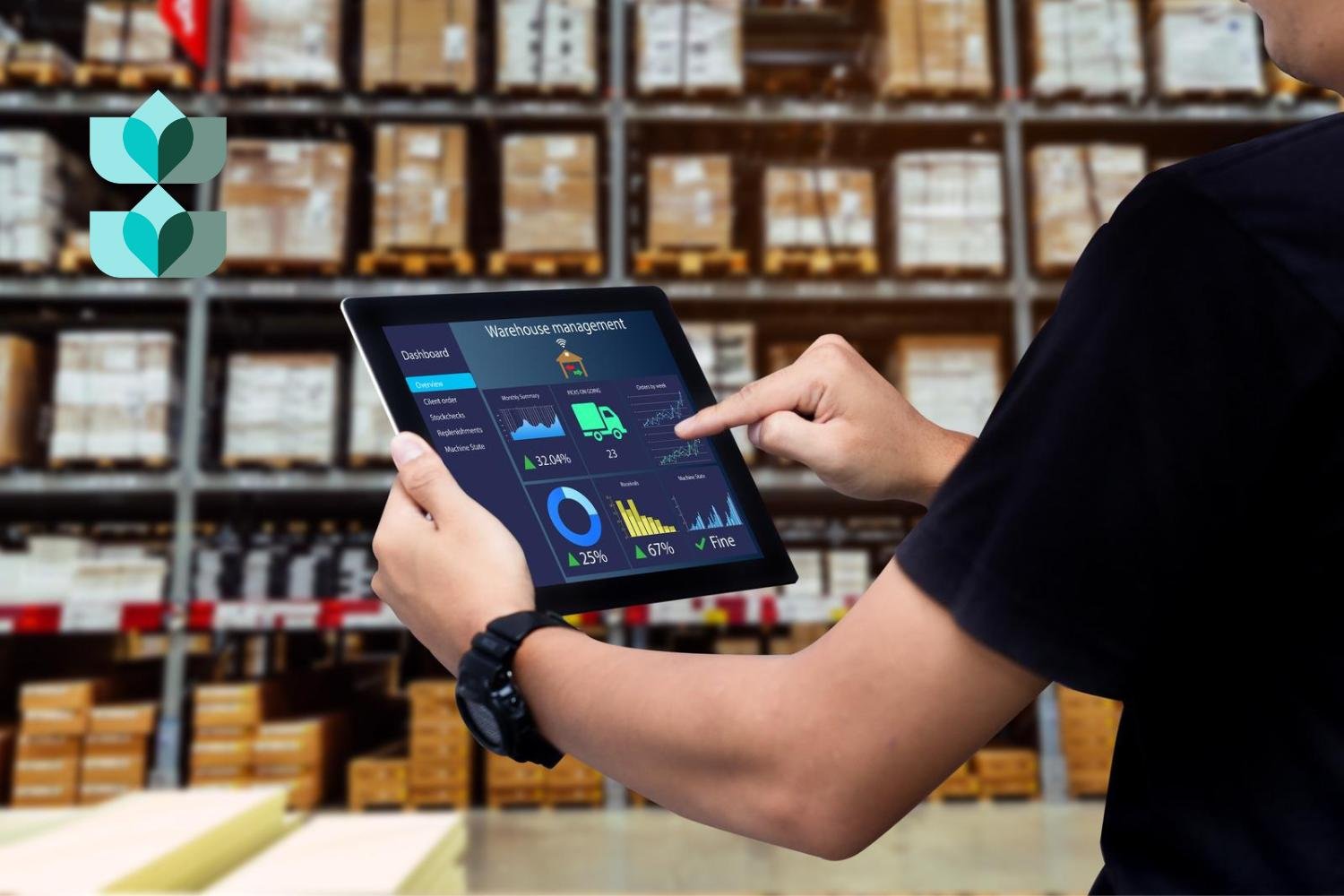Manufacturing ERP: Everything You Need to Know
It can be incredibly challenging to manage the operations of a manufacturing business. It involves coordinating with different departments, managing inventory, tracking orders, and ensuring timely delivery of products. Technological advancement has made it easier to manage these tasks with the help of Manufacturing ERP systems. This comprehensive guide will cover everything you need to know about Manufacturing ERP systems and how they can maximize efficiency in your business.
Introduction to Manufacturing ERP
Manufacturing Enterprise Resource Planning (ERP) software helps manufacturers manage their day-to-day business operations. It is a centralized system that allows businesses to manage their production process, inventory, financials, and customer orders from a single platform. Manufacturing ERP systems are designed to streamline business processes, reduce costs, and improve productivity.
One of the key advantages of Manufacturing ERP is that it provides real-time data that helps businesses make informed decisions. With the help of Manufacturing ERP, businesses can track inventory levels, monitor the production process, and analyze sales data to identify trends and patterns. This data can then be used to make strategic decisions to help businesses grow.

Benefits of Manufacturing ERP
Implementing Manufacturing ERP can provide several benefits to manufacturing businesses. Some of the key benefits include:
Improved Efficiency
Manufacturing ERP systems are designed to automate business processes, which can help businesses save time and increase efficiency. Businesses can reduce errors and improve productivity by automating data entry, inventory management, and order processing tasks.
Enhanced Visibility
Manufacturing ERP systems provide real-time data to help businesses make informed decisions. This data includes inventory levels, order status, and production schedules. With this information, businesses can identify bottlenecks and inefficiencies in their processes and take steps to address them.
Cost Savings
Manufacturing ERP systems can help businesses save money by reducing waste, lowering inventory levels, and optimizing production processes. By automating tasks and improving visibility, businesses can identify areas where they can reduce costs and increase profitability.
What Kind of Companies Need Manufacturing ERP?
A wide range of companies in the manufacturing industry uses manufacturing ERP (Enterprise Resource Planning) systems. These systems provide comprehensive solutions for managing and integrating various aspects of the manufacturing process, including production planning, inventory management, supply chain management, shop floor control, quality control, and financial management. Here are some examples of companies that commonly use manufacturing ERP:
Large-scale manufacturers: Companies involved in heavy industries such as automotive, aerospace, electronics, machinery, and industrial equipment often utilize manufacturing ERP systems. These companies have complex production processes, extensive supply chains, and high-volume manufacturing operations that require robust ERP solutions to streamline operations and enhance efficiency.
Small and medium-sized enterprises (SMEs): Many SMEs in the manufacturing sector benefit from implementing ERP systems. These companies may have smaller-scale operations but require effective production processes, inventory, and financial management. ERP systems help them automate workflows, improve productivity, optimize inventory levels, and make informed business decisions.
Process manufacturers: Industries that engage in process manufacturing, such as food and beverage, chemicals, pharmaceuticals, and cosmetics, find manufacturing ERP systems valuable. These industries often deal with intricate recipes, formulations, compliance regulations, batch tracking, and quality control. ERP systems designed for process manufacturing enable efficient management of these specific requirements.
Discrete manufacturers: Companies that produce individual, distinct items such as machinery parts, electronic components, furniture, and consumer goods can benefit from manufacturing ERP. Discrete manufacturers typically deal with bills of materials, work orders, routing, and assembly operations. ERP systems help them manage these processes, control inventory, and track production costs.
Contract manufacturers: Contract manufacturers provide manufacturing services for other companies products. They handle outsourcing production for various industries, including electronics, medical devices, apparel, etc. Manufacturing ERP systems help contract manufacturers manage multiple customer projects simultaneously, track production progress, monitor costs, and maintain customer-specific requirements.
Mixed-mode manufacturers: Some companies engage in both discrete and process manufacturing. Such mixed-mode manufacturers produce a combination of distinct items and processed goods. Manufacturing ERP systems with discrete and process manufacturing features can cater to their diverse needs.
Make-to-order manufacturers: Companies that produce customized products, such as furniture manufacturers or machine builders, can benefit from manufacturing ERP systems. These systems assist in managing complex configurations, tracking customer-specific requirements, and optimizing production scheduling.
These are just a few examples of companies that use manufacturing ERP systems. The requirements and functionalities may vary depending on the industry, company size, and production processes.

Features of Manufacturing ERP
Manufacturing ERP systems have various features to help businesses manage their operations more efficiently. Some of the key features of Manufacturing ERP include:
Inventory Management
Manufacturing ERP systems provide real-time inventory data, allowing businesses to track and manage inventory levels more effectively. This can help businesses reduce the risk of stockouts and overstocking, leading to waste and increased costs.
Production Planning and Scheduling
Manufacturing ERP systems provide tools for planning and scheduling production, allowing businesses to optimize production processes. With these tools, businesses can manage production schedules, allocate resources, and track progress in real-time.
Financial Management
Manufacturing ERP systems provide integrated financial management tools, allowing businesses to manage their financials more efficiently. This includes tools for managing accounts payable and receivable, invoicing, and financial reporting.
Who Uses Manufacturing ERP Systems?
Manufacturing ERP (Enterprise Resource Planning) systems are used by various stakeholders involved in the manufacturing industry. Here are some of the key users of manufacturing ERP:
Manufacturing Companies: The primary users of manufacturing ERP systems are the manufacturing companies. These can include small, medium, or large-scale organizations engaged in various types of manufacturing, such as discrete manufacturing, process manufacturing, or mixed-mode manufacturing. They use ERP systems to manage and streamline manufacturing processes, including production planning, scheduling, inventory management, quality control, procurement, and more.
Production Managers: Production managers play a crucial role in overseeing manufacturing operations. They use ERP systems to monitor production schedules, track work orders, allocate resources, manage labor, and ensure the smooth execution of manufacturing processes. The ERP system provides real-time visibility into the production floor and enables managers to make data-driven decisions.
Supply Chain Managers: Supply chain managers rely on ERP systems to manage end-to-end supply chain activities. They use ERP modules for demand forecasting, inventory optimization, vendor management, purchase order management, logistics coordination, and other aspects of the supply chain. ERP systems help streamline the flow of materials, reduce lead times, and improve overall supply chain efficiency.
Quality Control Personnel: Quality control teams utilize manufacturing ERP systems to maintain and enforce quality standards throughout production. They can track and analyze quality data, perform inspections and tests, manage non-conformances, and implement corrective actions. The ERP system provides tools for quality monitoring, statistical analysis, and reporting to ensure product quality and compliance.
Inventory Managers: ERP systems are essential for inventory management within manufacturing organizations. Inventory managers can track stock levels, monitor inventory movements, perform cycle counts, plan reorder points, and manage warehouse operations efficiently. The system enables them to optimize inventory levels, reduce carrying costs, and avoid stockouts or overstock situations.
Finance and Accounting Personnel: ERP systems provide financial modules that allow finance and accounting teams to manage financial transactions, track costs, generate financial reports, and ensure compliance with accounting standards. They can integrate manufacturing-related data, such as material costs, labor costs, overhead expenses, and sales revenue, into the financial system for accurate costing and profitability analysis.
Human Resources (HR) Department: HR departments utilize ERP systems to manage employee data, payroll, attendance, scheduling, performance evaluations, and other HR processes. In manufacturing, HR teams can use the ERP system to allocate and track labor resources, manage employee training and certifications, and ensure compliance with labor regulations.
These are just some of the key users of manufacturing ERP systems, and the specific roles may vary depending on the organization's structure and requirements.

Manufacturing ERP vs. Traditional ERP Systems
Manufacturing ERP systems are designed specifically for manufacturing businesses, while traditional ERP systems are designed for businesses in general. The key difference between the two is that Manufacturing ERP systems come with features tailored to manufacturing businesses' needs. For example, Manufacturing ERP systems come with production planning and scheduling tools, while traditional ERP systems do not.
Another key difference between the two is that Manufacturing ERP systems provide real-time visibility into production processes, allowing businesses to track progress and make informed decisions. Traditional ERP systems do not provide this level of visibility.
Implementing Manufacturing ERP
Implementing Manufacturing ERP can be a complex process that requires careful planning and execution.
The key steps in implementing Manufacturing ERP include:
Define Objectives
The first step in implementing Manufacturing ERP is to define your objectives. This involves identifying the specific business processes you want to improve and the benefits you hope to achieve.
Choose a Vendor
The next step is to choose a vendor that can provide a Manufacturing ERP system that meets your business needs. It is important to choose a vendor with experience working with businesses in your industry that can provide the level of support you need.
Plan Implementation
The next step is to plan the implementation of the Manufacturing ERP system. This involves identifying your needed resources, setting timelines and milestones, and developing a project plan.
Train Employees
Once the Manufacturing ERP system is in place, it is important to train employees on how to use it effectively. This involves providing training on the specific features of the system and how it can be used to improve business processes.

Common challenges in implementing Manufacturing ERP
Implementing Manufacturing ERP can be a challenging process that requires careful planning and execution. Some of the common challenges that businesses face when implementing Manufacturing ERP include the following:
Resistance to Change
One of the biggest challenges in implementing Manufacturing ERP is resistance to change. Many employees may be resistant to using a new system and may require additional training and support.
Data Migration
Another challenge is data migration. This involves transferring data from existing systems to the new Manufacturing ERP system. This process can be complex and time-consuming and requires careful planning and execution.
Integration with Existing Systems
Manufacturing ERP systems need to integrate with existing systems such as accounting software, inventory management systems, and customer relationship management (CRM) systems. This requires careful planning and execution to ensure that all systems work together seamlessly.
Maximizing Efficiency with Manufacturing ERP
Maximizing efficiency with Manufacturing ERP requires careful planning, execution, and ongoing monitoring. Some of the key strategies for maximizing efficiency with Manufacturing ERP include:
Process Automation
Manufacturing ERP systems provide tools for automating business processes, which can help businesses save time and reduce errors. By automating tasks such as data entry, inventory management, and order processing, businesses can improve efficiency and productivity.
Real-Time Data Analysis
Manufacturing ERP systems provide real-time data that can help businesses make informed decisions. By analyzing this data, businesses can identify trends and patterns and take steps to improve processes and increase efficiency.
Continuous Improvement
Maximizing efficiency with Manufacturing ERP requires a commitment to continuous improvement. This involves regularly reviewing processes, identifying areas for improvement, and making changes to optimize efficiency.

How can companies attain a Manufacturing ERP system?
Companies can attain manufacturing ERP by following these general steps:
Assess business requirements: Start by assessing your company's specific needs and requirements for a manufacturing ERP system. Consider factors such as the size and complexity of your operations, the number of users who will access the system, the functionalities you require (e.g., production planning, inventory management, quality control), integration with other systems, and budget constraints.
Research ERP vendors: Conduct thorough research to identify ERP vendors that specialize in manufacturing ERP systems. Look for vendors with a proven track record, positive customer reviews, and experience in your industry. Consider factors such as system features, scalability, ease of use, customization options, support services, and pricing models.
Request proposals and demos: Contact shortlisted ERP vendors and request proposals or demonstrations of their manufacturing ERP systems. This will allow you to evaluate each system's features, user interface, and suitability for your company. Ask questions, seek clarification, and consider the system's compatibility with your existing infrastructure.
Evaluate implementation options: Manufacturing ERP implementations can be complex, and you need to determine the best approach for your company. Some options include:
- On-premises deployment: The ERP system is installed and managed on your company's own servers and IT infrastructure. This option provides greater control but requires significant upfront investment and ongoing maintenance.
- Cloud-based deployment: The ERP system is hosted and managed by the ERP vendor in the cloud. This option offers scalability, easier upgrades, and lower upfront costs. However, data security and reliance on internet connectivity should be considered.
- Hybrid deployment: A combination of on-premises and cloud-based solutions, where certain modules or functionalities are hosted in the cloud while others remain on-premises. This approach allows for flexibility and customization.
Select a vendor and negotiate terms: After evaluating the proposals and demos, select the ERP vendor that best meets your requirements. Negotiate pricing, implementation timelines, support agreements, and any customization needs. Ensure that the contract clearly outlines the scope of work, deliverables, responsibilities, and service level agreements.
Plan and prepare for implementation: Collaborate with the ERP vendor to create an implementation plan. This involves identifying key stakeholders, establishing a project team, defining project milestones, data migration strategies, training plans, and change management processes. Allocate resources, budget, and time for the implementation.
Execute the implementation: Follow the implementation plan and work closely with the ERP vendor during the deployment phase. This typically includes system configuration, data migration, user training, testing, and integration with other systems. Regularly communicate with employees, address concerns, and ensure proper documentation and knowledge transfer.
Go-live and post-implementation support: Once the ERP system is ready, conduct a final round of testing, and prepare for the system's official launch. Monitor system performance, provide ongoing training and support to users, and address any issues or bugs that arise. Establish mechanisms for continuous improvement and periodic system updates.
Remember that each company's journey to attain manufacturing ERP may vary based on specific requirements, industry, and existing infrastructure. It is important to allocate sufficient time, resources, and expertise to ensure a successful implementation and maximize the benefits of the ERP system.

Manufacturing ERP vendors and products to consider
There are several Manufacturing ERP vendors and products to consider when choosing a system for your business. Some of the key vendors and products include:
SAP
SAP is a leading provider of Manufacturing ERP systems, offering a range of products tailored to the needs of manufacturing businesses. SAP ERP is a popular choice for businesses of all sizes.
Oracle
Oracle is another leading provider of Manufacturing ERP systems, offering a range of products that are designed to meet the needs of manufacturing businesses. Oracle ERP is a popular choice for businesses that require advanced financial management capabilities.
Microsoft Dynamics
Microsoft Dynamics is a popular choice for businesses already using Microsoft products. The system provides a range of features tailored to manufacturing businesses' needs.
Is Manufacturing ERP right for your business?
Manufacturing ERP systems can significantly benefit manufacturing businesses, improving efficiency, enhanced visibility, and cost savings. However, implementing Manufacturing ERP can be a complex process that requires careful planning and execution. Before choosing a Manufacturing ERP system, evaluating your business needs and choosing a system that meets those needs is important. With the right system, you can streamline your business processes, reduce costs, and improve productivity. If you’d like to learn more about how a top-notch Manufacturing ERP system can vastly improve your business's day-to-day operations, sign up to book a demo to learn more about inecta’s full suite of offerings for companies just like yours.











Free Valuable Resource!
3 simple steps to find your Food ERP
Free Valuable Resource!
3 simple steps to find your Food ERP
*We will never sell your information. Keeping your data and privacy secure is our highest concern.